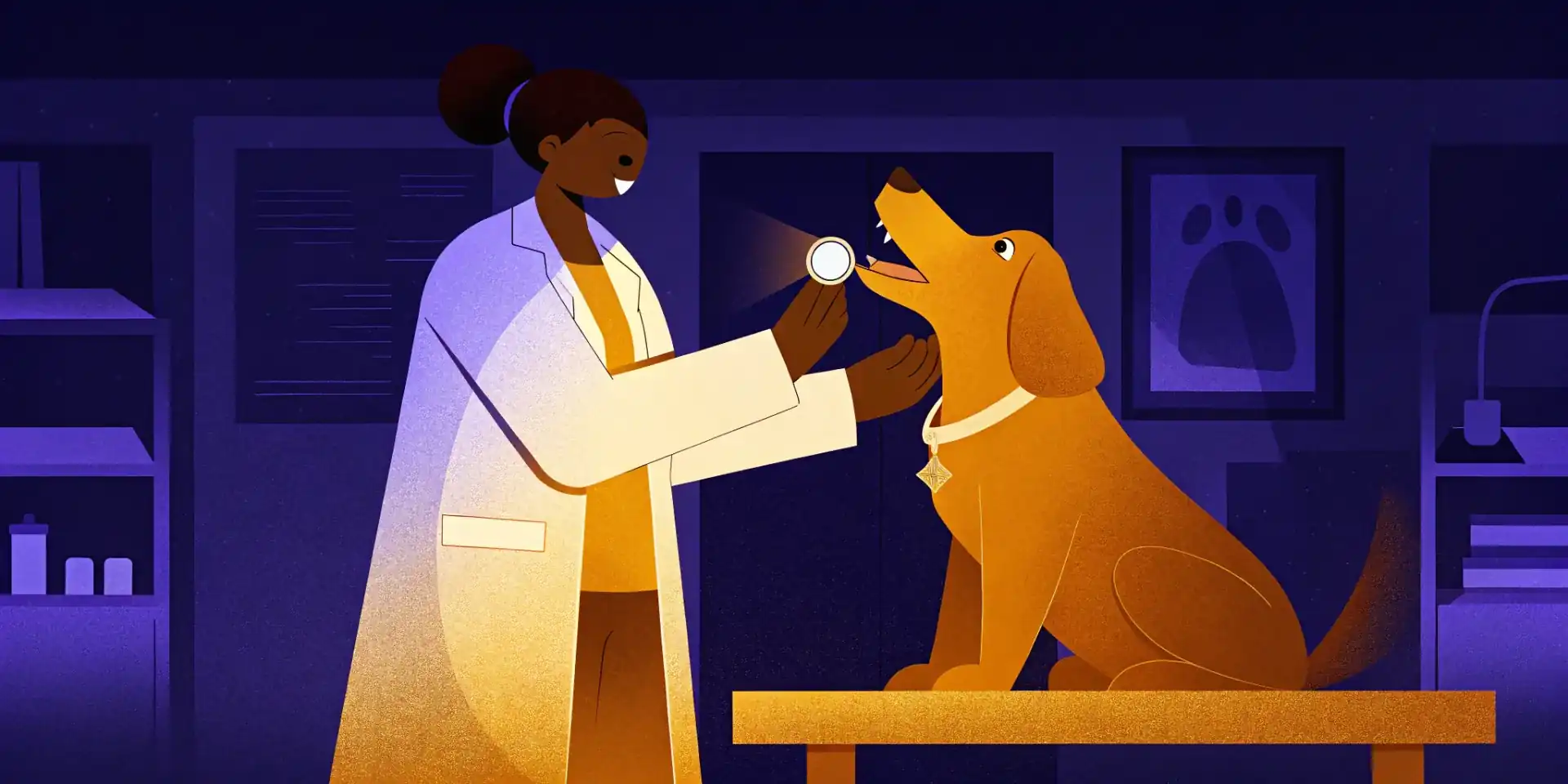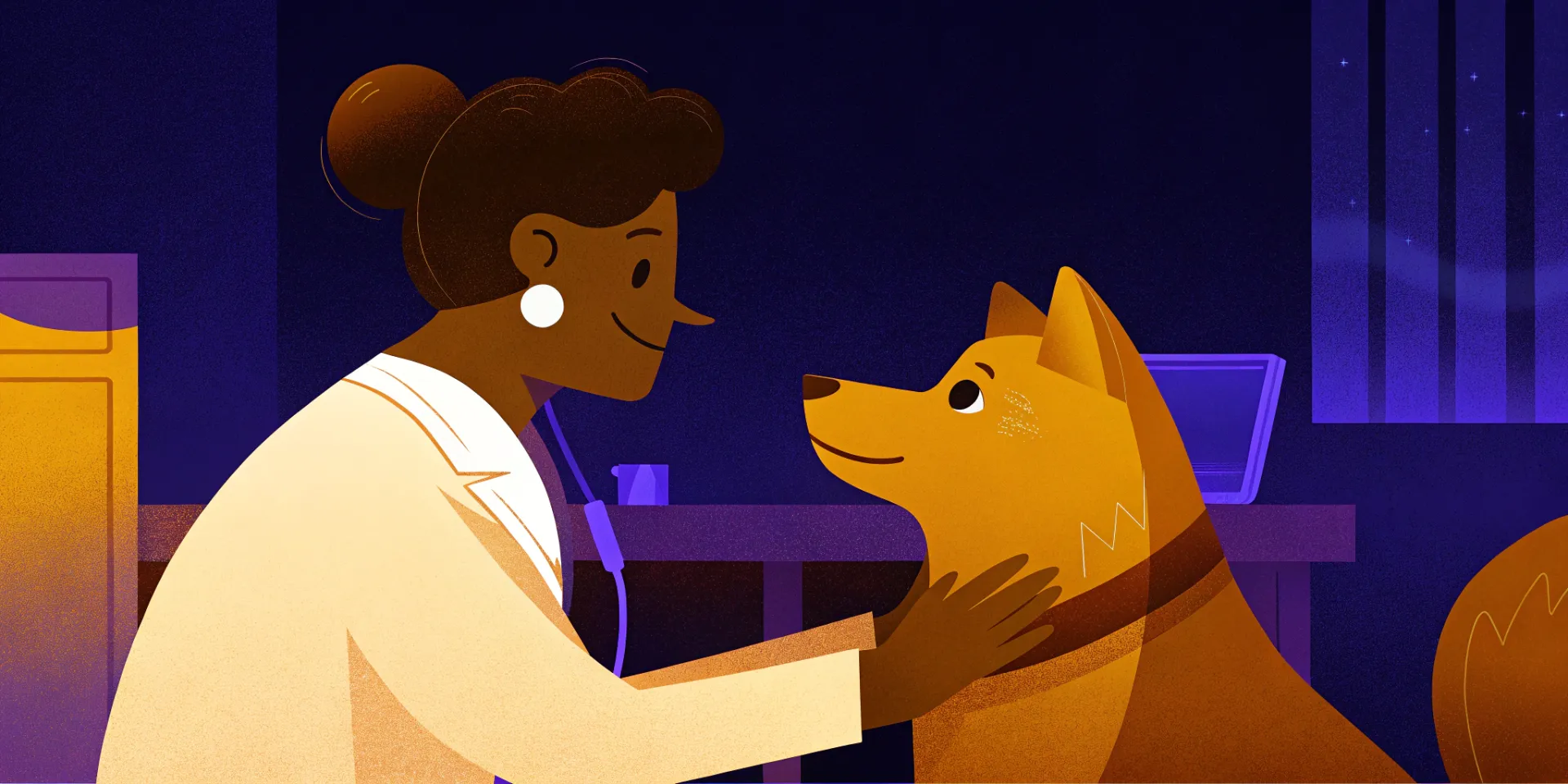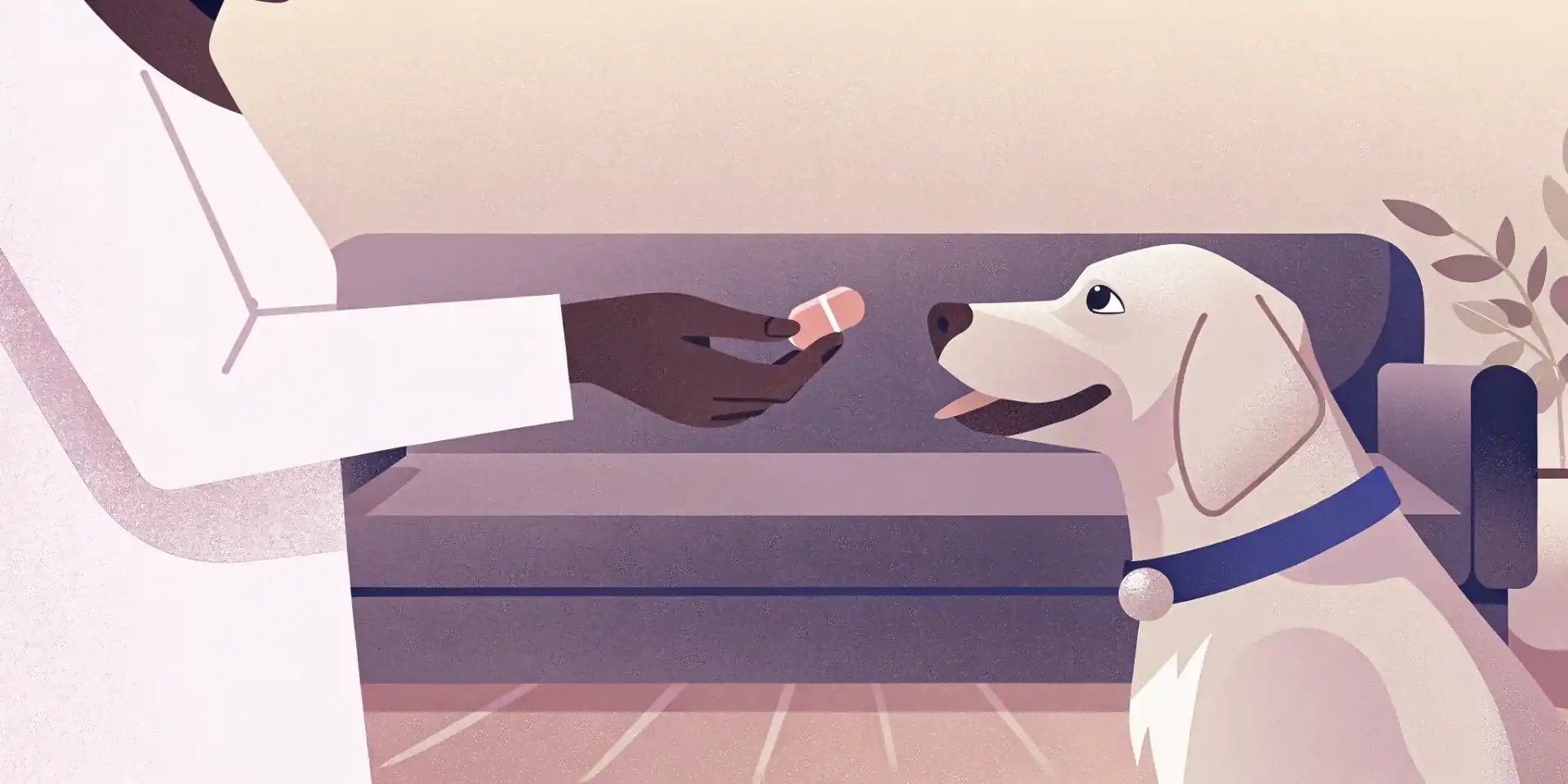
Dog Vet Checkups: Keep Your Best Friend Healthy!
Is your dog healthy? Annual vet checkups are vital! Learn how preventive care keeps your best friend happy & thriving. Click to read more!
Annual Vet Check-ups: Why Preventive Care is Crucial for Adult Dogs
As a devoted dog owner, you want the best for your furry friend. You shower them with love, provide them with nutritious food, and make sure they get plenty of exercise. But are you also ensuring they receive the preventive care they need to thrive throughout their adult years? Annual vet check-ups are a cornerstone of responsible pet ownership, and I’m here to tell you why they’re so much more than just a formality. Think of them as an investment in your dog’s long-term health and happiness, and a key component of responsible dog ownership.
Why Annual Check-Ups Matter for Adult Dogs
Adult dogs, generally considered to be between 1 and 7 years old (though this varies by breed), may seem healthy on the surface. They’re energetic, playful, and have a healthy appetite. However, many health problems can develop silently during this time, and early detection is critical. Many owners mistakenly believe that if their dog “seems fine”, there’s no need for a vet visit. This is a dangerous misconception.
Annual vet check-ups allow your veterinarian to:
-
Detect subtle signs of illness: Vets are trained to identify early indicators of disease that you might miss at home. They can spot changes in weight, coat condition, dental health, or even behavior that could signal underlying problems. This can include checking for early signs of degenerative joint disease in older dogs or heart murmurs in large breed dogs.
-
Provide essential vaccinations: Vaccinations protect your dog from potentially life-threatening diseases like rabies, distemper, parvovirus, and adenovirus. Your vet can tailor a vaccination schedule to your dog’s specific needs and lifestyle. I always recommend discussing your dog’s lifestyle with your vet; a dog who frequents dog parks will have different risk factors than a dog who stays mostly indoors.
-
Perform parasite prevention and control: Heartworms, fleas, ticks, and intestinal parasites can wreak havoc on your dog’s health. Your vet can recommend appropriate preventative medications and perform fecal exams to detect and treat any existing infestations. We always recommend year-round heartworm prevention, regardless of where you live.
-
Assess dental health: Dental disease is incredibly common in adult dogs and can lead to serious health problems, including heart disease and kidney disease. A vet check-up includes a thorough dental examination, and your vet can advise you on proper at-home dental care and recommend professional cleanings when necessary. I believe that regular teeth brushing is the single best thing you can do for your dog’s dental health between professional cleanings.
-
Monitor weight and nutrition: Maintaining a healthy weight is crucial for your dog’s overall well-being. Your vet can assess your dog’s body condition and provide guidance on appropriate diet and exercise to help them stay at a healthy weight. Obesity is a huge problem in the pet population, and can shorten your dog’s lifespan.

Image of a veterinarian performing a dental exam on an adult dog. The vet is wearing gloves and using a dental instrument, and the dog is calm and cooperative.
What to Expect During an Annual Vet Check-Up
A typical annual vet check-up will include a comprehensive physical examination. Your vet will:
- Listen to your dog’s heart and lungs: This helps detect heart murmurs, respiratory problems, or other abnormalities.
- Palpate the abdomen: This allows the vet to feel for any enlarged organs, masses, or areas of tenderness.
- Examine the eyes and ears: This helps detect signs of infection, inflammation, or other abnormalities.
- Assess the skin and coat: This helps detect signs of allergies, parasites, or skin infections.
- Check the joints and muscles: This helps detect signs of arthritis or other musculoskeletal problems, particularly important if you’re looking for early detection of arthritis in dogs.
- Take your dog’s temperature: This helps detect fever, which can be a sign of infection.
- Weigh your dog: This helps track weight changes and monitor for weight gain or loss.
In addition to the physical exam, your vet may recommend additional diagnostic tests, such as:
- Blood tests: These can help detect a wide range of health problems, including kidney disease, liver disease, diabetes, and thyroid problems.
- Urine tests: These can help detect urinary tract infections, kidney disease, and diabetes.
- Fecal tests: These can help detect intestinal parasites.
- Heartworm tests: These are essential for detecting heartworm infection, which is transmitted by mosquitoes.
Investing in Your Dog’s Future: The Cost of Prevention vs. Treatment
Some pet owners may hesitate to schedule annual vet check-ups due to the perceived cost. However, it’s important to consider the cost of prevention versus the cost of treatment. Detecting and treating health problems early can often save you money in the long run, as well as prevent your dog from suffering unnecessarily. Think of it as proactive preventative dog health care rather than reactive treatment.
For example, detecting kidney disease early through blood tests can allow you to make dietary changes and start medications that can slow the progression of the disease and prolong your dog’s life. Waiting until your dog is showing obvious signs of kidney failure can result in much higher veterinary bills and a poorer prognosis.

Image of a healthy adult dog playing fetch in a park, emphasizing the dog’s energy and vitality.
My Personal Take: Don’t Wait, Schedule Today!
In my experience, the pet owners who prioritize preventive care are the ones who enjoy the longest, healthiest lives with their furry companions. I’ve seen countless cases where early detection through annual vet check-ups made a world of difference. Don’t wait until your dog is showing signs of illness to schedule a vet visit. Be proactive and schedule an annual check-up today.
I firmly believe that annual vet check-ups are a non-negotiable aspect of responsible dog ownership. They’re an investment in your dog’s health, happiness, and overall quality of life. They provide peace of mind knowing you’re doing everything you can to keep your best friend healthy and by your side for years to come. Plus, it’s a great opportunity to ask any questions you have about your dog’s behavior, diet, or exercise routine. Your vet is a valuable resource, so take advantage of their expertise!

Image of a veterinarian petting an adult dog after a successful check-up. The vet is smiling, and the dog appears relaxed and comfortable.
Specific Recommendations for Senior Dogs
While annual checkups are important for adult dogs, senior dog health care requires even more diligence. As dogs age (typically considered senior around 7+ years), they become more prone to age-related health problems. For senior dogs, I often recommend biannual checkups to catch issues even earlier. Talk to your veterinarian about tailoring a preventive care plan specifically for your senior dog’s needs.
Beyond the Clinic: What You Can Do At Home
Remember, preventative care isn’t just about vet visits. It’s a lifestyle! Providing your dog with a high-quality diet, regular exercise, mental stimulation, and a loving home environment are all essential components of preventative care. Be observant of your dog’s behavior and habits, and report any changes to your vet promptly. You are your dog’s biggest advocate, and your observations are invaluable to their care.

Image of a dog owner giving their dog medication with a treat, demonstrating the owner’s active role in their dog’s health management.


